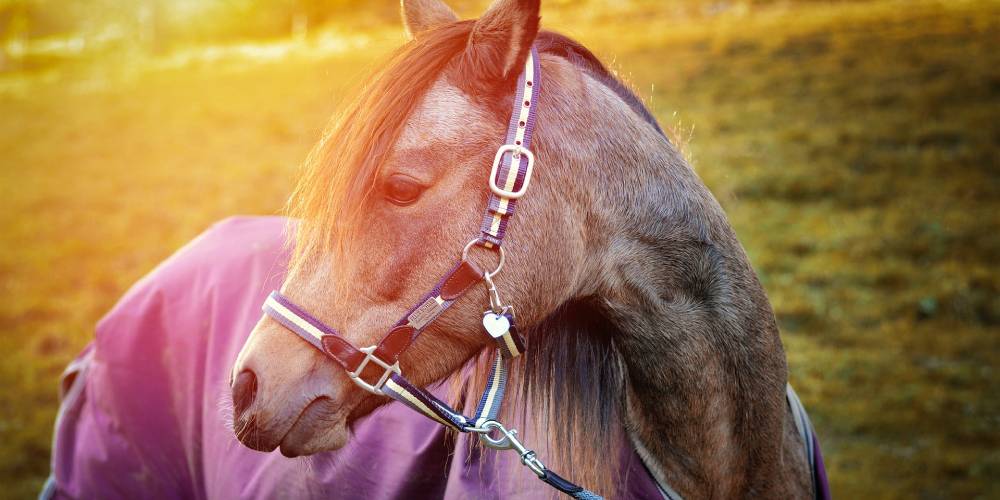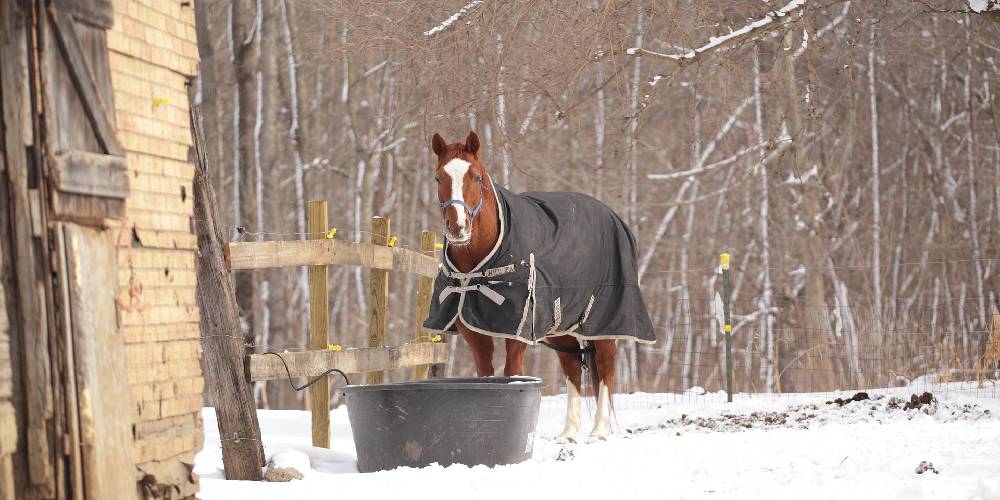With fall rapidly approaching, many countries and states are beginning to see the leaves change color, and the cool breezes blowing over the land. This means that you need to get ready for the cold winters that are coming your way! In the winter, most horses are seen wearing blankets because of how cold it is in the winter time. But when is the best time to start putting that blanket on your horse? And what temperature should I start putting blankets on my horses?
In this guide I will cover:
- When should you put a blanket on your horse?
- Why do horses need blankets?
- Should I use a sheet or a blanket on my horse?
- Can I put a blanket on a wet or sweaty horse?
- How long can I leave a blanket on my horse?
When Should You Put A Blanket On Your Horse?
Horses, like people, can get really cold in the fall and winter months. Because of this, you need to sometimes equip them with a blanket to help keep them warm during this part of the year. Horses should be blanketed if the temperature drops below 45° Fahrenheit (7.2° Celsius). If the temperature is around 40 degrees Fahrenheit (4.4° Celsius) then a light blanket is all that is required, but if it is -10° Fahrenheit(-23.3° Celsius), then a heavyweight blanket should be used. It all depends on your horse, and the climate of the place you are living.
Why Do Horses Need Blankets?

When you are cold, you probably start to look for a jacket, sweatshirt, or blanket to put around yourself to help keep warm. Horses are the same way where they need to wear more than just their winter coats to stay warm.
Horses need blankets to help keep their body temperatures stable, keep them feeling comfortable, and reduce risk of shivering and chills.
Blankets should be put on sometimes during the day, and definitely put on at night. They should be put on according to the weather, temperature, and environment they are in.
Should I Use A Sheet or a Blanket On My Horse?
It really is hard to say whether or not you should use a sheet versus a blanket on your horse. Some horses do better in the cold than others which is what makes it hard to say.
What Is A Sheet?
A sheet is just a really lightweight blanket used on horses in mildly cold weather. It keeps them warmer than they would be if they had no blanket on at all, but it is light and thin enough to keep them from sweating or overheating.
What Is A Blanket?
A horse blanket is heavier than a sheet but looks pretty much the same. Blankets are intended for really cold weather to keep horses warm and prevent hypothermia. You can get blankets in various weights ranging from lightweight to heavyweight.
For the average horse, this is the general recommendation when it comes to blanketing:
| Above 45°F (7.2°C) | No blanket required |
| Between 45°F & 30°F (7.2°C & -1.1°C) | Sheet/Lightweight blanket |
| Between 30°F & 15°F (-1.1°C & -9.4°C) | Light/Medium-Weight blanket |
| Between 15°F & 0°F (-9.4°C & -17.8°C) | Heavyweight blanket |
| Between 0°F & -15°F (-17.8° & -26.1°C) | Heavyweight blanket |
| Below -15°F (-26.1°C) | Heavyweight Blanket |
Can I Put A Blanket On A Wet Or Sweaty Horse?

Technically yes you can, but it is not recommended. This is because a horse won’t completely dry off under the blanket and if the weather is cold enough, that extra water can freeze.
If your horse is sweaty, walk them so they can cool down less rapidly and the sweat has time to dry before you blanket the horse.
If your horse has been bathed, squeegee and towel them off as best you can and walk them until they have completely dried. Once your horse is dry, you can then put a blanket on them.
How Long Can I Leave A Blanket On My Horse?
Horses should have their blanket removed at least 3 times per week or every other day. Horses should be groomed when their blanket is removed to help keep their coat and skin healthy.

